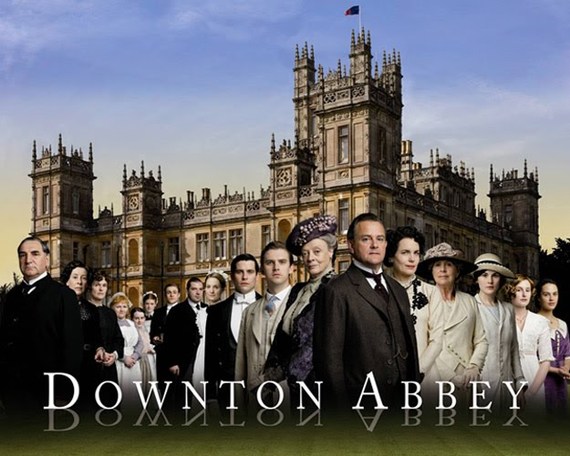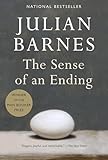
[Spoilers abound for the most recent season of Downton Abbey, including the Christmas special, “A Journey to the Highlands,” which aired in the U.S. this past Sunday.]
The first stage of television grief is rejection: when a favorite character is killed off, the desire to distance yourself from a show you love, to disown it, even, is powerful. “I’m done,” you declare firmly. “I’ve had enough of this crap. They’ve gone too far this time.” I’ve seen it in a lot of fan communities; I’ve said it (half-heartedly) myself. In the past decade or so, I’ve developed a bad habit of falling in love with a certain type of BBC series, whose writers seem to be collectively united by slim budgets and streaks of cruelty: on one of my favorite shows, three of the five major characters are killed in the span of five episodes; on another, the entire cast of four kicks it in under a season — and it might be worth noting that most of them go violently, too. After rejection is anger, then grief, or just denial, denial, denial, because television arcs can feel sort of flimsy, lacking the sturdy finality of plot decisions in books and movies. If a character can be knocked off by a writer’s whim, perhaps it’ll be just as easy to resurrect him in time for mid-season sweeps, or to wash it all away, à la Dallas, with the cheap dismissal that it was all just a dream. It’s not terribly surprising that none of my favorites have ever come back from the dead.
Outside the realm of sadistic BBC showrunners, it seems that characters usually get killed for reasons far less noble than the pursuit of unshakable dramatic tension — it’s often the simplest way to fulfill contract obligations, to remove an actor from the equation. Around the time that the second season of Downton Abbey finally limped to a finish on American televisions last winter, producers began to leak spoilers for the third season, slated to air in the fall on ITV and on a similarly baffling several-month delay in the U.S. We were soon told that some characters wouldn’t make it to season four, and later, we learned exactly which actors had declined to renew their contracts. It was relatively easy to put two and two together. A pair of well-loved characters were about to bite the dust.
First up was Lady Sybil, played by Jessica Brown Findlay, who was able to bow out gracefully mid-season, after spending most of the first few episodes off-screen, which served to prepare us for her departure. But poor Dan Stevens wasn’t so lucky — by the end of it, I was all but waiting for him to just go, in what the LA Times called “the most internationally anticipated death since Little Nell’s,” and finally, he went, flung unceremoniously from a car in one of the sloppiest plot twists in a show founded on sloppy plot twists, 90 seconds from the end of the Christmas special. Merry Christmas! Here’s a fatal head wound and some heavy-handed dramatic irony.
And then Julian Fellowes — creator, head writer, and the object of as much scorn as praise amongst fans, if not more — put out two completely warring explanations in the weeks that followed: one, that he was as bummed as we were that Dan Stevens wanted off the show (and, to be fair, part of the suddenness must be chalked up to Stevens’s late decision to officially leave), but then elsewhere, that Matthew absolutely had to go, because, after getting Mary, losing Mary, nearly dying in battle, becoming paralyzed, being able to walk again (God, can you believe we’re all watching such a goddamned soap opera), hooking up with Mary for real, inheriting the fortune that saves the estate, and finally, having a baby, he was just too damn satisfied with life, and, in Fellowes’s words, “nothing is harder to dramatise than happiness.”
Christmas had long-since passed by the time PBS aired the American edit of the 90-minute special. On the arts pages of British news websites in late December, fans seemed split: for some, it was that classic last straw, spurring on the rejection stage of television grief — in The Guardian’s comments section, echoes of “And then, they went and ruined Christmas;” for others, it was just one more reason to gripe about the show more generally, a pastime that seems to get a lot of currency — in the same thread, one person who was a day late watching wrote, “I missed being able to hop over here and read all the bitching though, that’s the best thing about Downton.” The dialogue across the Atlantic is largely different, and kind of strange and excruciatingly self-aware: we spend a lot of time talking about why we watch this show, about its muddled politics, about our suppressed yearnings for simpler times and rigid class systems, and about whether or not the show is good historical fiction or just a guilty pleasure. But when it came to Matthew’s death, people seemed to have been reduced to the same dichotomy: rage and sadness, or general disgust. A woman on an LA Times thread said it well: “To raise viewers up so high and then suckerpunch them right before the credits roll was incredibly manipulative. It pulled me right out of the fantasy and I’m not going to bother with season four.”
There is something notable about the backlash when a television character is killed: fans take the opportunity to tear apart the writers’ choices beyond the decision to bump off an individual: across the show, all the indignities they’d have suffered through if everyone had been permitted to live. I wasn’t heavily invested in Matthew as a character — I’m not interested in most of the upstairs at this point, really, and after hearing Bates and Anna have the same goddamned conversation across a table in prison for nine episodes in a row, I’m running out of downstairs characters, too. But I am interested in why this show seems to work when it continually feels like it’s not working at all, on a writing level — do we all have Stockholm Syndrome or something? I watched the very first episode again recently, and marveled at the sharp, subtle tension — the plot twists feel like they’re actually set up, rather than just clumsy blunt jabs, and the divide between the staff and the household felt fantastically uncomfortable — remember the moment when Bates catches Mary and the Duke of Crowborough breaking into Thomas’s room, the complicated dynamics of shame and privilege at work in that exchange? I’m not sure when we said goodbye to all of that, but it seems to be gone for good.
I vastly preferred this season to the previous one, as did, it sounded like, basically everyone; there was nothing even remotely as painful as the Canadian burn-victim cousin storyline, after all, and I liked the shifting arc of sympathy for Thomas, stripping him of his status as mustache-twirling bad guy and turning him into a complexly screwed up individual. But Fellowes is plagued by the same shoddy pacing, the same weird relationship with passing time, and the same old paradox of a deeply conservative show whose characters are becoming increasingly progressive — more progressive, it often feels like, than the time period should warrant, like Lord Grantham giving everyone a pro-gay rights lecture in his cricket whites. If anything, it all feels a bit stagnant: in a smart piece for The New Republic this past week, Lili Loofbourow likens Fellowes to Pachelbel: “themes and variations are his medium, and this is the season of the reprise.” She goes on, “In the absence of real conflict, it’s unsurprising that Fellowes flirts with anticlimax this season like never before.” Previously, every plot twist imaginable was thrown at the wall to see what would stick; now, that wall has been moved slightly out of range.


 I’ve been reading one of Fellowes’s novels recently, Past Imperfect, which was published in 2009, nearly a decade after Gosford Park and a year before Downton was first aired. The common threads between the novel and the show aren’t surprising, exactly, but they’re notable. The basic plot: the protagonist, a Londoner in late-middle age, is reunited with Damian Baxter, an old enemy who was once his friend. Baxter is dying of pancreatic cancer, and he’s got a self-made fortune of half a billion pounds waiting for an heir — a child whom he has never met, doesn’t even know the exact identity of, really, fathered illegitimately 40 years prior. Baxter tasks the narrator with hunting down the child by whittling away at a list of ladies that he remembers sleeping with in the late ’60s. There are moments that remind me a little of A Sense of an Ending, by Julian Barnes, because of the surfacey details — a thoughtful man towards the end of life trying to piece together a falling out in his youth — except it’s less meditative and haunting and subtle, and more…well, more like Downton Abbey.
I’ve been reading one of Fellowes’s novels recently, Past Imperfect, which was published in 2009, nearly a decade after Gosford Park and a year before Downton was first aired. The common threads between the novel and the show aren’t surprising, exactly, but they’re notable. The basic plot: the protagonist, a Londoner in late-middle age, is reunited with Damian Baxter, an old enemy who was once his friend. Baxter is dying of pancreatic cancer, and he’s got a self-made fortune of half a billion pounds waiting for an heir — a child whom he has never met, doesn’t even know the exact identity of, really, fathered illegitimately 40 years prior. Baxter tasks the narrator with hunting down the child by whittling away at a list of ladies that he remembers sleeping with in the late ’60s. There are moments that remind me a little of A Sense of an Ending, by Julian Barnes, because of the surfacey details — a thoughtful man towards the end of life trying to piece together a falling out in his youth — except it’s less meditative and haunting and subtle, and more…well, more like Downton Abbey.
How strange it is, to read the protagonist’s moaning about the passage of time, and the way things used to be and how all the good days are behind us: this must be Fellowes’s chief M.O., whether the Dowager Countess is waxing nostalgic about the ’60s — the 1860s — or Lord Grantham about the Edwardian era, or Carson, who seems more invested in tradition than all of the aristocrats combined. “There’s a danger in it, obviously,” the narrator of Past Imperfect says early on, “but I no longer fight the sad realization that the setting for my growing years seems sweeter to me than the one I now inhabit…I suppose what I miss above all things is the kindness of the England of half a century ago. But then again, is it the kindness I regret, or my own youth?”
So perhaps herein lies the problem. On Downton, characters are always looking backwards, but to move them forward, Fellowes is left hurtling them along against their will, with big, dramatic plot points and soap-opera staples. They acquire more generous perspectives to please the fans — I was delighted by Lord Grantham’s pro-gay rights speech in his cricket whites — but they don’t, for the most part, truly develop. He doesn’t give them space to do so. Characters fall out and we leap ahead to the end of the fight. Major changes happen against the characters’ wills, and we hear that it has changed them, for better or for worse, after the fact. Does this matter? Maybe not. But it feels unsustainable. That might not matter though — because in the stages of television grief, after denial, denial, denial comes grudging acceptance. We’ll all keep watching.
Image Credit: The Chicago Maroon








